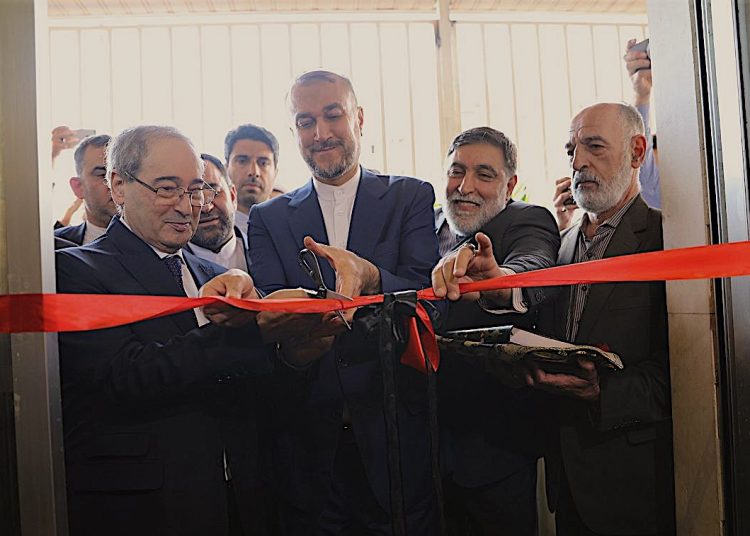In a diplomatic visit to Damascus, Iran’s Foreign Minister, Hossein Amirabdollahian, engaged with top Syrian officials, including the President and Foreign Minister. This marked his inaugural visit following the assault on the Iranian consulate by Israel. During this trip, he also presided over the unveiling of the new Iranian consulate building in Syria, alongside his Syrian counterpart.
A pivotal discussion point for Minister Amirabdollahian in Damascus centered on the consulate attack by Israel and Iran’s planned retaliation. He conveyed that Iran has determined its response, forewarning that Israel will face challenging times “in the coming days”. Nevertheless, he refrained from divulging specifics about this response.
Throughout his meetings and the joint press conference with the Syrian Foreign Minister, Amirabdollahian repeatedly held the United States culpable for the attack, underscoring the imperative for Washington to assume responsibility.
He declared emphatically from Damascus, “I say it loud that America bears responsibility for this incident and must be held accountable. The Israeli regime will be punished.”
Amirabdollahian further elaborated, “It appears that Netanyahu would not have been able to proceed without the United States’ green light. Despite American assurances to Iran disclaiming any coordination or approval for the attack on the Iranian consulate in Damascus, the absence of US condemnation for such a blatant violation against a diplomatic entity encourages Israel to perpetrate crimes and breach the sanctity of diplomatic immunities.”
The recent pronouncements by Iran’s chief diplomat signal a more assertive stance regarding Iran’s assured response and the impending difficulties for Israel. While Iran has previously attributed blame to the United States, the Foreign Minister’s explicit references to the necessity of American consent for the attack represent a more direct and forceful tone.
The influence of the Foreign Minister’s recent dialogue with his Omani counterpart in Muscat on these statements remains uncertain. Given Oman’s historical role as an intermediary between Iran and the United States, it is conceivable that a message exchange occurred, potentially involving the conveyance of an American message by the Omanis. However, details of this message exchange are yet to be disclosed.
During a joint press briefing with his Syrian counterpart in Damascus, the Iranian Foreign Minister alluded to the visits of Ismail Haniyeh and Ziad Al-Nakhale, prominent figures of Hamas and the Islamic Jihad movement, to Tehran. He noted that their presence facilitated substantive discussions and significant consultations within the Axis of Resistance.
Additionally, Seyyed Hassan Nasrallah, Secretary-General of Lebanon’s Hezbollah, addressed a memorial service for the victims of the attack on the Iranian consulate in Damascus today. He stated, “The Americans and Israelis have recognized that Iran’s response [to the consulate attack] is coming.”
The implications of today’s pronouncements by Iran’s Foreign Minister and the Secretary-General of Lebanon’s Hezbollah are discernible: the prospect of Iran’s retaliation against Israel has once again intensified. Recent conjecture suggested that Iran’s response would be measured and precise, timed impeccably, which had seemingly diminished the immediacy of the response, yet the intent persisted. The declarations made today in Damascus and Beirut have reignited the discourse on Iran’s anticipated reaction. The question of whether Iran will enact its response in the near future or continue to shroud Israel in a veil of uncertainty and trepidation remains elusive. Regardless, the specter of dread looms large over Tel Aviv.






